http://markgeoffreykirshner.com/feed



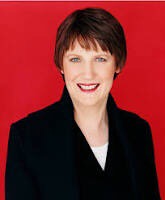
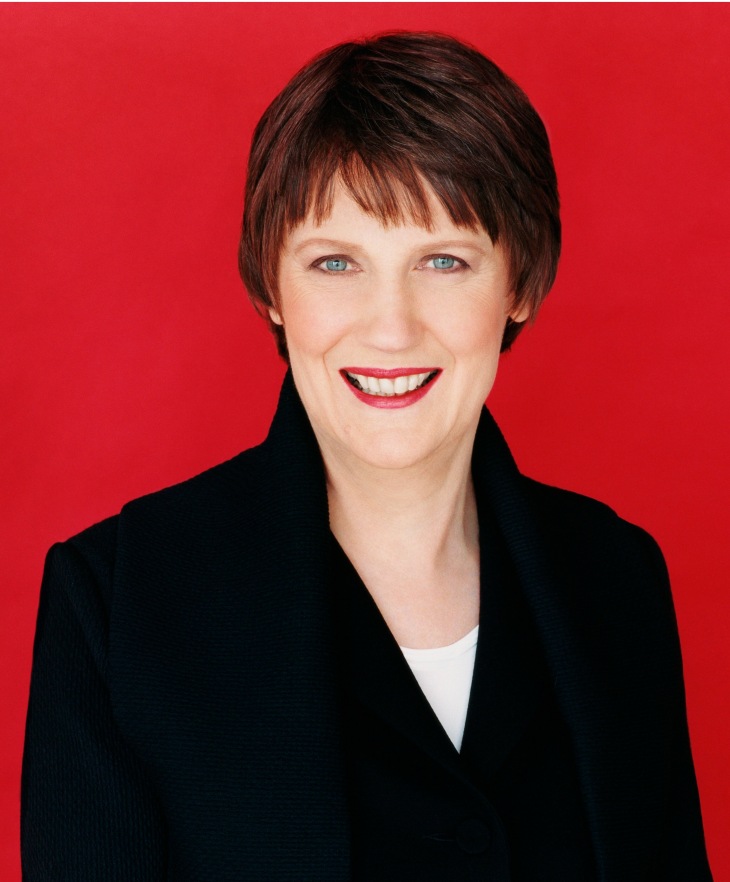
@HelenClarkUNDP
As Prime Minister of New Zealand, I worked in an environment where, by law, citizens were entitled to access official information. So when I came to lead UNDP, I asked: ‘Why can’t we be just as open?’ There was no good reason not to be. Accordingly we at UNDP embraced the International Aid Transparency Initiative and worked hard to meet its high standards.
Thanks to incredible efforts and commitment from UNDP staff, we have succeeded in having our organization recognized as being the most transparent aid organization in the world. For two years in a row now, UNDP has topped the Aid Transparency Index compiled by Publish What You Fund, an organization which advocates for and measures aid transparency. All of us at UNDP take great pride in this achievement.
We have placed transparency at the very core of our mission. We believe it is vital to build and maintain trust with all our partners and with the citizens we serve in developing countries. Those who channel funding through us have a right to know how it is used, and so do citizens.
As the lead and coordinating agency in the UN development system, UNDP is well placed to share its experience of becoming highly transparent with sister UN agencies. Getting there requires a clear vision of what needs to be done, and strong staff commitment to bring about a change of culture in the way information is handled. Innovation in the use of technology is needed to capture and visualize data.
UNDP’s commitment to transparency does not end with simply publishing reams of data. We have also committed to using data in ways which improve our work. That means consulting our data as a key step in planning our projects. This helps ensure that our work is effective because it is done in the full knowledge of the information and evidence we have.
Of course, there is always room for improvement. We must commit to continual improvement in the quality of our data. We must work each day to make the data as comprehensive as we can. For UNDP, this is about being the very best development organization we can be, and about building and maintaining trust and confidence across all our partners.
Transparency International Development Helen Clark
As Prime Minister of New Zealand, I worked in an environment where, by law, citizens were entitled to access official information. So when I came to lead UNDP, I asked: ‘Why can’t we be just as open?’ There was no good reason not to be. Accordingly we at UNDP embraced the International Aid Transparency Initiative and worked hard to meet its high standards.
Thanks to incredible efforts and commitment from UNDP staff, we have succeeded in having our organization recognized as being the most transparent aid organization in the world. For two years in a row now, UNDP has topped the Aid Transparency Index compiled by Publish What You Fund, an organization which advocates for and measures aid transparency. All of us at UNDP take great pride in this achievement.
We have placed transparency at the very core of our mission. We believe it is vital to build and maintain trust with all our partners and with the citizens we serve in developing countries. Those who channel funding through us have a right to know how it is used, and so do citizens.
As the lead and coordinating agency in the UN development system, UNDP is well placed to share its experience of becoming highly transparent with sister UN agencies. Getting there requires a clear vision of what needs to be done, and strong staff commitment to bring about a change of culture in the way information is handled. Innovation in the use of technology is needed to capture and visualize data.
UNDP’s commitment to transparency does not end with simply publishing reams of data. We have also committed to using data in ways which improve our work. That means consulting our data as a key step in planning our projects. This helps ensure that our work is effective because it is done in the full knowledge of the information and evidence we have.
Of course, there is always room for improvement. We must commit to continual improvement in the quality of our data. We must work each day to make the data as comprehensive as we can. For UNDP, this is about being the very best development organization we can be, and about building and maintaining trust and confidence across all our partners.
Transparency International Development Helen Clark
Helen Clark
Administrator, United Nations Development Programme
As Prime Minister of New Zealand, I worked in an environment where, by law, citizens were entitled to access official information. So when I came to lead UNDP, I asked: ‘Why can’t we be just as open?’ There was no good reason not to be. Accordingly we at UNDP embraced the International Aid Transparency Initiative and worked hard to meet its high standards.
Thanks to incredible efforts and commitment from UNDP staff, we have succeeded in having our organization recognized as being the most transparent aid organization in the world. For two years in a row now, UNDP has topped the Aid Transparency Index compiled by Publish What You Fund, an organization which advocates for and measures aid transparency. All of us at UNDP take great pride in this achievement.
We have placed transparency at the very core of our mission. We believe it is vital to build and maintain trust with all our partners and with the citizens we serve in developing countries. Those who channel funding through us have a right to know how it is used, and so do citizens.
As the lead and coordinating agency in the UN development system, UNDP is well placed to share its experience of becoming highly transparent with sister UN agencies. Getting there requires a clear vision of what needs to be done, and strong staff commitment to bring about a change of culture in the way information is handled. Innovation in the use of technology is needed to capture and visualize data.
UNDP’s commitment to transparency does not end with simply publishing reams of data. We have also committed to using data in ways which improve our work. That means consulting our data as a key step in planning our projects. This helps ensure that our work is effective because it is done in the full knowledge of the information and evidence we have.
Of course, there is always room for improvement. We must commit to continual improvement in the quality of our data. We must work each day to make the data as comprehensive as we can. For UNDP, this is about being the very best development organization we can be, and about building and maintaining trust and confidence across all our partners.
Follow Helen Clark on Twitter: http://www.twitter.com/HelenClarkUNDP
More:
Transparency International Development Helen Clark
has been verified by Rise: R48b34e3c8a75da50a662065d3ad1cb5f
News about History, future, science, space, tech, IT, geek stuff & design by Maxime Duprez
Source: Maxinews
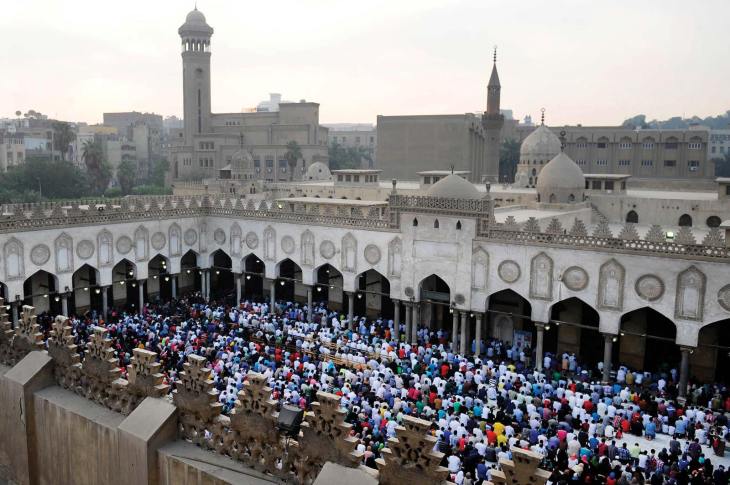

 Invisible Atheists: The Spread of Disbelief in the Arab World | The New Republic. AST DECEMBER, DAR AL IFTA, a venerable Cairo-based institution charged with issuing Islamic edicts, cited an…
Invisible Atheists: The Spread of Disbelief in the Arab World | The New Republic. AST DECEMBER, DAR AL IFTA, a venerable Cairo-based institution charged with issuing Islamic edicts, cited an…
Source: Invisible Atheists: The Spread of Disbelief in the Arab World | The New Republic




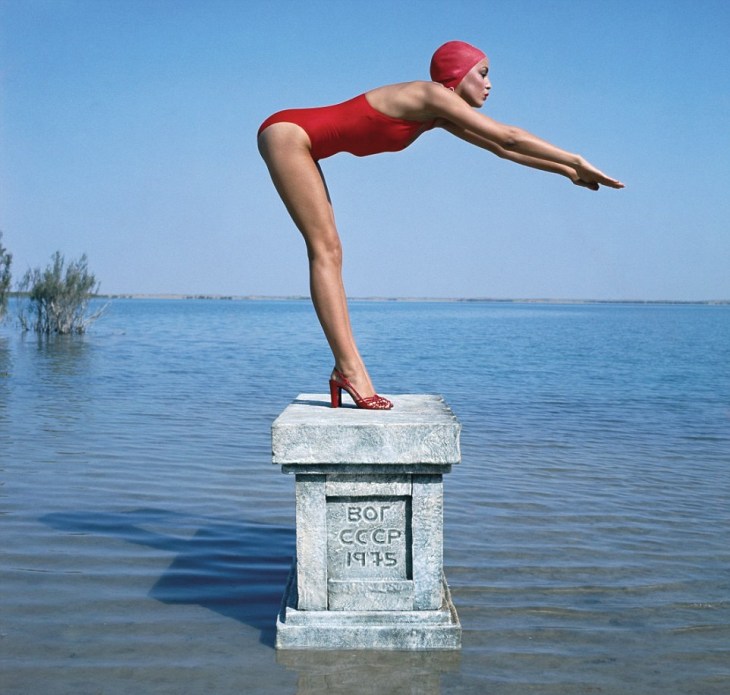



 Some say it was Norman Parkinson who brought fashion photography into the 20th century. Maybe yes, maybe no. But his influence can’t really be argued.
Some say it was Norman Parkinson who brought fashion photography into the 20th century. Maybe yes, maybe no. But his influence can’t really be argued.
Source: It Norman Parkinson who brought fashion photography into the 20th century

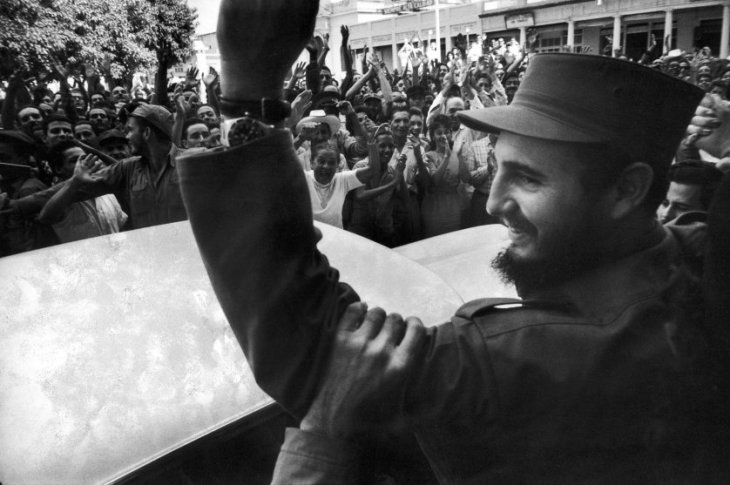
Fidel Castro ( Getty Images)
Cuba’s revolutionary leader Fidel Castro has died at the age of 90. The legacy of Castro, the “commandante” is not just his revolutionary communism, but a grand and more disturbing stance, one that was characterized as an anti-American charismatic tyranny.
For years following the collapse of colonialism, communists, socialists, and radical Islamists have committed abhorrent crimes that have systematically been watered down by their supporters, under the pretext that America and other Western powers are worse. The depth of anti-Americanism has caused many to lose their moral compass. In the latest responses to Castro’s death, we see how many have turned a blind eye to Castro’s abhorrent, systematic repression of his opponents.
This has occurred not just for Castro, but also for Nasser of Egypt, Saddam of Iraq, and even the Assad regime of Syria. All still enjoy a good dose of popularity among…
View original post 471 more words
Issue No.1320, 17 November, 2016 15-11-2016 06:12AM ET
Hurricane Trump
Upturning all predictions, Trump has won the US presidency. But now he will face an uphill battle of proving that he can do better than the politicians he lambasted, writes Hany Ghoraba
PrintEmailShare/Bookmark
The majority of world political analysts and pundits discounted Donald Trump from a victory in the Republican Party primaries let alone an actual victory in the presidential elections themselves. The shocking earth-shaking victory for Donald Trump may have altered the world political spectrum indefinitely. The American nation has shifted overnight from far left tendencies represented by incumbent President Barack Obama to the far right agenda represented by President-elect Donald Trump. This radical shift is one of the most violent witnessed in American and Western democracies and is likely to have repercussions in US and European politics in the upcoming years.
Businessman and President-elect Donald Trump was never a seasoned politician nor held any political position in his entire life, and oddly enough that seemed to be a plus for American voters vis-à-vis other candidates.
Donald Trump would have had a much more difficult path than it was already had any other president been in office than Barack Obama. Despite a 54 per cent approval rating for Obama, the massive disappointment and alienation the once charismatic president left in the minds of the American people made it even more difficult for Hillary Clinton to get elected as his successor. Clinton carried his baggage along with hers, especially the FBI investigation on her deleted emails.
CLINTON GAFFES AND BLUNDERS: While the Clinton campaign was basking in the large support of the mainstream media, the Trump campaign seemed more concerned with the grassroots movement in smaller towns and rural areas, especially in the southern and mid-western states. Campaigners re-invigorated sectors that weren’t keen on voting, or those who didn’t vote for many elections before to vote for Trump. Coincidently, that was the method Barack Obama utilised to defeat Hillary Clinton in the primaries and consequently win the elections in 2008. He managed to overcome the odds stacked against him as a young African American with limited political experience. Surprisingly, the Clinton campaign neglected these winning tactics and was brimmed with a sense of confidence that Clinton would inevitably win.
The Clinton campaign was too focussed on the significance of having a woman be president for the first time in US history and stopping Trump from reaching the Oval Office. Evidently, both cases were not very convincing to the American public since having a woman still doesn’t seem to be a priority for the majority of Americans, despite their 200 years of democratic elections. Trump, on the other hand, focussed on the issues rebuilding the economy and America’s world stature that has been suffering by Obama’s policies. His approach, though unorthodox and appalling in most cases, seemed appealing to the American public and he managed to win the support of grassroots movements.
DEMOCRATS RUDE AWAKENING: 8 November 2016 marked as one of the worst days in the history of the Democratic Party, hit by the triple blow losing Congress, the Senate and the White House all in one night. This hit may act as a wakeup call to party leaders who were still basking in the historic 2008 victory on a similar night when Barack Obama took over the White House by storm.
The Democratic Party must learn lessons from the Republican Party who managed to undertake a healing process successfully after losing two presidential elections. Despite that Donald Trump was divisive within the Republican Party and many of key GOP figures did not endorse him, the party stood firmly against bashing him in order to show some sense of unity and not to lose the 8 November elections. This political wisdom delivered the desired results and Republicans who believed that their party was disintegrating after the 2008 elections are now in control in the Senate, Congress and the White House in 2017. Nothing in politics is written in stone and a week is already a long time in that realm, let alone eight years.
Unintentionally, the mass media and American liberal pundits played an incredible role in shifting the votes of the neutrals towards Donald Trump in sending a subliminal message that Clinton’s victory was assured. They managed to convince millions of Americans, including Clinton supporters, that their participation was not so much of a necessity since Clinton would win anyway, according to their misleading polls and inaccurate analyses. Ignoring grassroots movements and focusing on the celebrity and elite opinion were fatal mistakes by the US mainstream media as well as overrated think tanks.
Despite Trump being guilty of many obnoxious remarks, racist slurs and controversial actions, there was a significant degree of ridiculing his supporters, who may not share his views but felt that they need to change the legacy of Obama/Clinton, even if it meant shooting themselves in the foot.
TRUMP PRESIDENCY AND EXPECTATIONS: Ironically, while Trump is a billionaire businessman who operates several highly lucrative ventures, his victory doesn’t necessarily spell great prospects for business and economy, at least in the short term. His statements of reviewing and possibly annulling United States trade agreements with other countries, including NAFTA, may result in negative repercussions if implemented.
In the near future, the war on terrorism will escalate against the Muslim Brotherhood and franchises such as Al-Qaeda and the Islamic State group. Muslim Brotherhood affiliates such as CAIR, ISNA and Islamic Relief will have a harder time operating freely in the United States as fronts for the Muslim Brotherhood.
On the longer run, the rifts created by Trump’s rhetoric may expand during his rule and may create massive social instability in the US, which is likely to affect its ability to function abroad, especially with Latin American nations and predominantly Muslim ones. Trump has surrounded himself with many unsavoury figures such as Newt Gingrich, Ann Coulter, Pamela Geller and similar racists who endorsed his candidacy, such as former Grand Wizard of the Ku Klux Klan (KKK) David Dukes. These are key figures that Trump must distance himself from, if he plans to lead an effective presidency, as their baggage will scar his image regardless of how much he attempts to change it.
If Trump delivers half of his presidential campaign promises or threats, then the world should brace itself for a lot of chaos in the upcoming four years. However, Mr Trump may shift instead to his pragmatic businessman side and should understand that addressing a group of enthusiastic steel workers in Pennsylvania will be different than dealing with other world heads of states when one wrong move or gesture may have dire consequences on world peace and stability.
Trump’s initial post-victory statements seem more pragmatic than expected and in his meeting with President Obama, Trump was attempting to look more presidential than the angry and disgruntled candidate he was previously. He is exchanging positive messages with the leaders of Egypt, Russia, the United Kingdom and others in an attempt to sooth the world’s fears.
Thus far, it is not entirely doom and gloom or the end of civilisation as the world media is attempting to portray it after Trump’s surprising victory, but it will be definitely uncertain times ahead until Mr Trump gets a grasp of what is at stake in being president.
The fact remains that Trump has to prove himself to Americans and to the world more than any other president in US history. He relied mainly on populist rhetoric and accusing other politicians of complacency, fraud and corruption. Now, he has an uphill battle to prove that he is better than all of them.
http://weekly.ahram.org.eg/News/17863/21/Hurricane-Trump.aspx
5-Stars Excellent analysis of American politics by Dr Nervana Mahmoud “the Egyptian lady sitting in the last row,..”
“To the Egyptian lady sitting in the last row, if you want Trump, you can have him.”
I was attending a political conference that featured a heated debate on the US presidential election, and these words from an American delegate surprised me. He was reacting to my suggestion that Americans should learn from Britain’s Brexit vote and not underestimate Trump’s chances of becoming president. But instead of rationally addressing my concerns, he reacted angrily and bitterly. Later in the year, this bitterness surfaced again when I had the opportunity to meet two American politicians in a symposium, a Trump supporter and a Clinton supporter. An argument erupted between them when I rather naively asked about the American election and Trump’s chances of winning it.
The two incidents were eye opening for me. America, like Britain, Europe, and the Middle East, is not just deeply divided, but is facing winds of…
View original post 665 more words
“To the Egyptian lady sitting in the last row, if you want Trump, you can have him.” I was attending a political conference that featured a heated debate on the US presidential election, and these …
Source: Reflection on Trump’s victory and the crisis of the liberal camp | Nervana